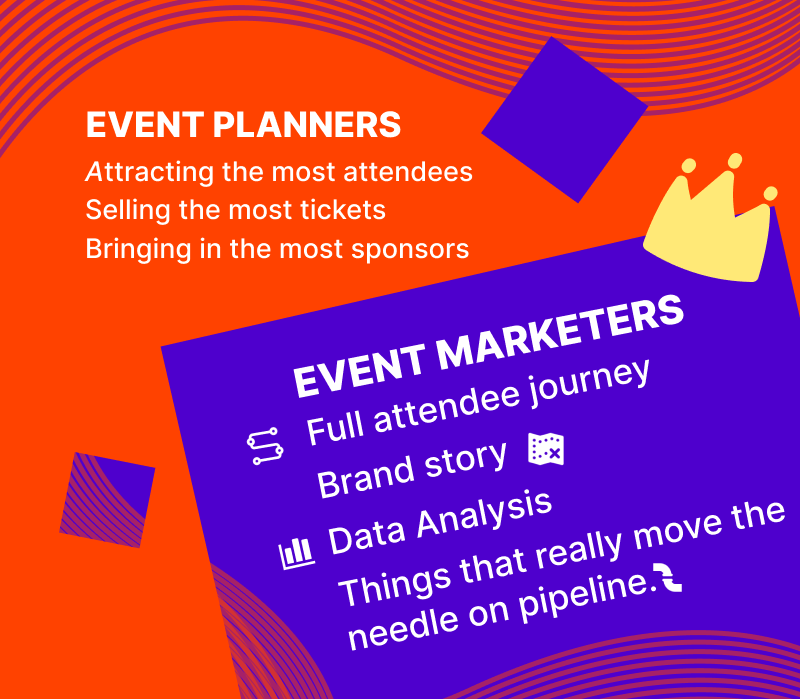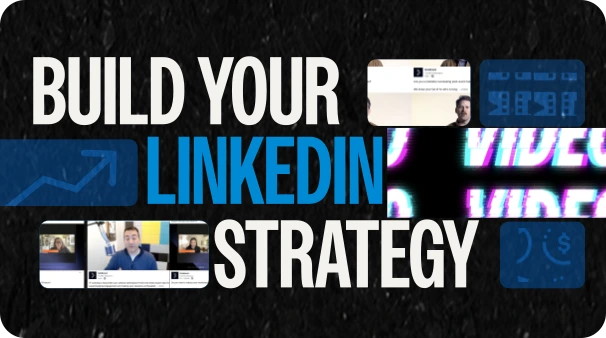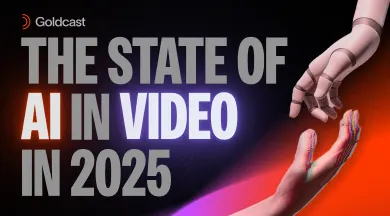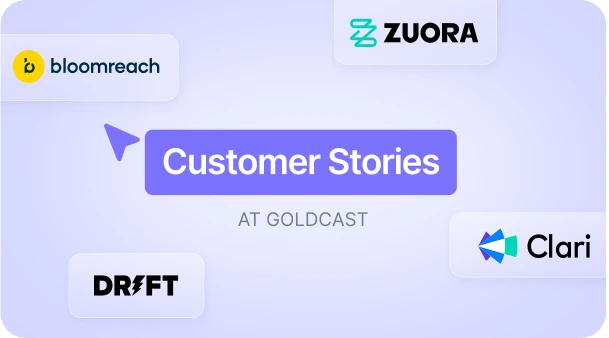No, B2B Event Marketers Are Not “Event Planners”

Maximize Your Marketing ROI
Join 10,000 other marketers already getting the best tips on running engaging events that boost pipeline and create raving fans.
What do event planners and event marketers have in common?
Far less than you might think.
And unless your B2B go-to-market (GTM) strategy runs on buying lead lists, spamming prospects with cold emails, and boasting about vanity metrics like lead count and ticket sales — confusing the two could cost you major revenue.
Because while event planners are focused on attracting the most attendees, selling the most tickets and bringing in the most sponsors, event marketers are thinking about the entire customer lifecycle.
Sarah Reed, an incredible event marketing leader from Zendesk said this well during our Event Marketers Live show
They care about the full attendee journey, the brand story you’re telling, and the data you pick up along the way. Things that really move the needle on pipeline.
With the maturation of the market, the old ways of hard-sell B2B marketing are dead and gone.
Yet despite having ownership over what is possibly the most influential brand messaging channel today, event marketers are still looked at as mere “event planners”.
We think it’s time to set the record straight.
B2B marketing isn’t what it used to be
The traditional business event was based on luck and odds. The model was: cram a lot of people into a room and hope you connect with enough of them to make it worth your frequent flyer miles.
At the time, these one-and-done events were just about the only in-person way for B2B companies to get their brand out in front of hundreds of prospects. It was a bottom-of-the-funnel, non-recurring, non-scalable endeavor.
The return on investment was truly hard to measure.
But while overwhelmed Account Executives were scurrying across cavernous Las Vegas ballrooms trying to connect with the right people, the go-to-market strategy for B2B tech companies was evolving into something completely different.
From push marketing to brand storytelling
The SaaS industry has grown from $31.5 billion in 2015 to an estimated $171.9 billion in 2022 — an approximately 5X increase in just seven years.
As the market has matured, competition has increased. More and more, B2B consumers are behaving like B2C consumers, researching a brand’s products, competitors, and values long before they schedule a demo.
For these buyers, a great product is table stakes. With an overwhelming number of choices, customers want to know the people behind the product, why they created it, and what they stand for.
This evolution in B2B consumer behavior also gave shape to what was truly achievable with event marketing and how different that could be from event planning as we knew it.
While an event planner is judging the flatware and pushing for peak ticket sales, event marketers are asking: “Why are we doing this event? What outcomes are we aiming for? How does it serve the brand?”
Of course, the details still matter. Every event touchpoint is crucial to a brand’s image. But as B2B marketing continues to mature, the role of the event marketer has elevated.
The event marketer of the future now takes ownership over community building, customer education, and pipeline creation — crucial GTM tasks that simply wouldn’t be required of an event planner.
The rise of the modern event marketer
As B2B buyers have become more discerning, events have grown more sophisticated. From a once annual affair, event marketing has become the mouthpiece of the brand, educating prospects and customers on everything from industry trends to core product use cases.

Event marketing has become the mouthpiece of the brand, educating prospects and customers on everything from industry trends to core product use cases.
In addition to the classic in-person event, virtual and hybrid events have now expanded event marketing into an omnichannel strategy — one that can empower B2B marketers to tell their brand story across all stages of the funnel. One that can scale.
Today, it’s not uncommon for event marketers to take ownership of a year-long pipeline of events that fit neatly within a company’s GTM plan. Realizing that strategy requires a suite of scalable, full-funnel events — plus their accompanying pre and post-event tasks.
Yet somehow, the misconception of an event marketer as an event planner persists.
Not just event planners
To be clear, we are not knocking event planners. They have an important role to play in the world of events and as “event people,” we’re all in this fight together.
But when it comes to the world of B2B events, specifically those that play a key role in a modern GTM strategy, the role of event planner and event marketer couldn’t be more different.
Event planners see a win in attendance numbers, ticket sales, and sponsorship revenue. These are all great results, but they tend to be short-term in nature.
Event marketers, on the other hand, tend to be less focused on short-term wins and more focused on nurturing relationships, amplifying brand messaging, and collecting deep data insights that can be used for extended touchpoints with prospects and customers.
Getting a seat at the table
If one thing is clear, it's that in the modern game of B2B marketing, knowing how to plan a good event simply isn't enough.
At Goldcast, we believe that is finally beginning to change.

In our Field and Event Marketing Compensation Report for 2022, we found that many growing companies are now able to match the pay provided by more established players. This is a strong signal that well-funded startups are beginning to view event marketing as a high-value role.
Yet too often, the busywork of planning an event overshadows the true value of an event marketer. Event marketing is still confused with booking speakers when it should be seen as a key pipeline-building position.
The tide is finally changing
As we slowly switch perspectives from “event planner” to “event marketer”, event marketers must continue to prove their value to the organizations they serve.
They can do this by actively working to develop a nuanced understanding of their brand's GTM motion, working with sales to remain intentional about the ways they'll drive value before, during, and after an event, and using data to determine where their events may be over- or under-serving various parts of the funnel.
As more sales and leadership teams turn to their event marketers to answer key questions about the number of prospects and customers engaging with their brand, this role will continue building the reputation it deserves.

Stay In Touch
Platform
Resources
Company
Community
© 2025 Copyright Goldcast, Inc. All rights reserved.



 Upcoming Events
Upcoming Events Event Series
Event Series On-Demand Events
On-Demand Events

